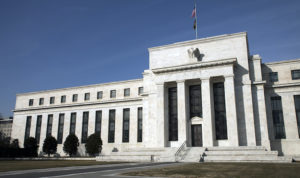
President Biden orders the regulation of cryptocurrency, bans oil and natural gas imports from Russia, and more…
IN THE NEWS
- President Joseph R. Biden signed an executive order for the United States to develop and regulate digital assets such as cryptocurrencies more responsibly. The order directed the U.S. Department of the Treasury and other agencies to develop protectionary policies for consumers, businesses, and the economy concerning the digital asset sector. President Biden acknowledged inequities for communities in accessing financial services and noted that equity would inform the government’s approach to digital asset regulation and innovation. The order also outlined steps for researching and developing a U.S. Central Bank Digital Currency.
- President Biden issued an executive order banning imports of oil and natural gas from Russia. As part of the regulatory response to Russian actions in Ukraine, the Biden Administration also plans to release oil from the Strategic Petroleum Reserve—a U.S. emergency oil supply—to limit the increase in gas prices for American consumers. In issuing the order, the Biden Administration also confirmed its policies “are not limiting the production of oil and gas” domestically.
- The U.S. Department of Homeland Security (DHS) issued a rule to clarify its definitions and procedural requirements for individuals seeking classification as a special immigrant juvenile. This classification protects individuals from deportation who have been “abused, abandoned or neglected by a parent.” Classification as a special immigrant juvenile can qualify an individual for lawful permanent resident status. DHS updated its rule to implement statutory changes about special immigrant juvenile classification, such as ensuring that an applicant is considered for classification if they file before they turn 21 years old.
- The Transportation Security Administration (TSA) extended the federal mask mandate on public transit, such as airplanes and trains, until April 18, 2022. The TSA stated that during this extension, the Center for Disease Control and Prevention will collaborate with other agencies to create policies “for when, and under what circumstances” masks should be mandated on public transportation.
- The U.S. Environmental Protection Agency (EPA) proposed new standards to reduce pollution from heavy-duty trucks. The proposed rule would apply to trucks in model year 2027 and beyond. With these new standards, EPA intends to “reduce emissions of smog- and soot-forming nitrogen oxides” and reduce greenhouse gas emissions. EPA’s proposal is the first step in the agency’s Clean Trucks Plan—a plan to issue regulations over the next three years to reduce pollution and greenhouse gas emissions.
- Hawaii Governor David Ige announced that the state’s indoor mask mandate would come to an end on March 26. In doing so, Hawaii becomes the last state to announce an end to the mask mandate intended to slow the spread of COVID-19. The state still recommends mask-wearing in certain high-risk settings, such as health care facilities.
- EPA reinstated a waiver that allows California to create its own motor vehicle emissions standards. The waiver also allows other states to adopt California’s standards, giving California the ability to set higher standards for auto emissions than the federal government. California Governor Gavin Newsom thanked the Biden Administration for restoring the waiver, calling it a “major victory for the environment, our economy, and the health of families across the country.”
- The Florida legislature approved the creation of an election fraud police force. The law authorizes the police force to conduct independent investigations into allegations of voter fraud and other election law violations and oversee preexisting election regulation processes in the state. Broward County elections supervisor Joe Scott said the elections police force “has the potential to intimidate a lot of voters.”
WHAT WE’RE READING THIS WEEK
- In a Brookings Institution report, Phillip Wallach, senior fellow at the American Enterprise Institute, and Kelly Kennedy, senior research assistant at the Brookings Institution, analyzed whether the Trump Administration delivered on former President Donald J. Trump’s promise of deregulation. Wallach and Kennedy noted that, although the administration added fewer new regulations than previous administrations, deregulatory actions were also costly and should be considered as part of a comprehensive overview of administrative actions. Wallach and Kennedy concluded that legal difficulties limited the administration’s regulatory goals, but that the Administration did change “the status quo” set by the Obama Administration.
- In an article for the Center for American Progress, Jessica Milli, Jocelyn Frye, and Maggie Jo Buchanan argued that federal policymakers must provide working Black women permanent access to paid family and medical leave. Milli, Frye, and Buchanon highlighted that 55 percent of parental leaves taken by Black mothers are unpaid. Milli, Frye, and Buchanan explained that a lack of guaranteed paid leave disproportionately harms Black women and families, who experience the highest rates of chronic illness and maternal and infant mortality. Moreover, the authors noted that lost income is “most acutely felt by Black women’s families since they are more likely to depend on their earnings” than other families. Milli, Frye, and Buchanan shared that Black women’s lost wages amount to about $3.9 billion annually. Milli, Frye, and Buchanan concluded that, especially during the COVID-19 pandemic, a federal paid leave policy is more necessary than ever.
- In a National Bureau of Economic Research working paper, Mette Foged, professor at the University of Copenhagen, Janis Kreuder, consultant for the World Bank, and Giovanni Peri, professor at University of California, Davis, analyzed the impacts of a Danish policy that matches refugees with employment. Foged, Kreuder, and Peri provided evidence that the job-matching policy can raise the employment rates of refugees, and specifically those of male refugees and refugees with low educational attainment. Foged, Kreuder, and Peri’s analysis also suggested that the job-matching policy had minor impacts on employment for native-born workers. Accordingly, they concluded that this kind of policy could be an economically and politically feasible way to integrate immigrants into developed countries.
FLASHBACK FRIDAY
- In an essay in The Regulatory Review, Stuart Shapiro, professor at Rutgers University, and Deanna Morgan, director of environmental planning at the Conservation Law Foundation, argued that voter identification laws impose a sizable but often overlooked cost on voters because they must pay to obtain IDs. Shapiro and Morgan analyzed estimates on the burden of obtaining an ID, such as the average distance between voters’ homes and sites for obtaining an ID. Based on the estimated burdens, Shapiro and Morgan approximated that the total cost of nationwide voter ID laws in 2019 would have ranged from $426 to $548 million. Shapiro and Morgan concluded that this cost far outweighs the benefit of voter ID laws because, although they are touted as a means to protect against voter fraud, studies have repeatedly shown that such fraud is rare.



